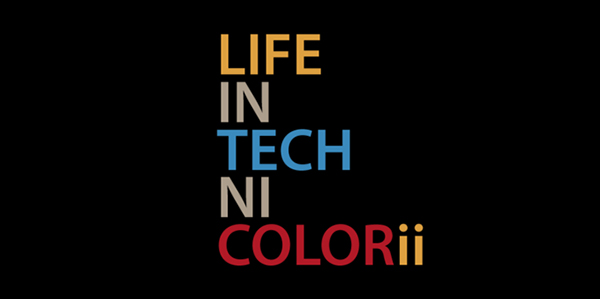
We are born into a world with very clearly outlined social norms, and their attached definitions of polarized morality. As you grow up, however, you quickly realize that your monochromatic world of “right” and “wrong” soon dissolves into a myriad of barely distinguishable grays. This does not simply refer to moral polarity, but the very essence of polarization. Over the past year and a half, Egypt and the Egyptian people have been forced to deal with this seismic intellectual shift. After enduring an authoritarian regime which by definition infantilizes the population into submission, Egypt was given a chance to mature, to “grow up”. As we can all attest, it’s no fun growing up.
By now, reality has hit – Dr. Mohamed Morsi of the Muslim Brotherhood candidate is Egypt’s first post-revolutionary president. This article does not discuss his win. Nor does it discuss the loss of his purportedly military-backed adversary, Ahmed Shafik. In the run up to the final chapter of the Egyptian electoral saga, the political debate was once again defined by polarity. What was previously folool (old regime loyalists) vs. thawrageya (revolutionaries), came to incorporate ikhwangiya (supporters of the Muslim Brotherhood) – which the Brotherhood desperately sought to make synonymous with the latter. However, what emerged was a much more general – and dangerous – divide. One that cut across the entire nation. Are you for the revolution, or against it?
I, for one, reject this question and the polarity it is predicated upon. If you trace back the root of this desire for polarized discourse – besides the argument that it is inherent in human nature – it is a logical remnant of an authoritarian regime that both promoted, and suffered from, the ideology of “with us or against us”. Suppression of sociopolitical freedoms such as freedom of speech and freedom of opinion resulted in a populace that believed there were only two streams in society – those that supported the Mubarak regime, and those that opposed it irrespective of the bases of their opposition. In recent months, as the Muslim Brotherhood launched an aggressive campaign to position Morsi as the “revolutionary candidate”, the opposition was once again forced to merge in a meaningless blob.
So where do I fit in? I am not a supporter of the old regime. I wholeheartedly believe in the essence of this revolution and believe Egyptians deserve the social justice that was practically nonexistent under the former regime. However, I am also ideologically opposed to the Muslim Brotherhood. I will never support a political organization who seeks democratic election while it has historically opposed fundamental democratic principles. As a woman, and as a champion of human rights, I refuse to elect an individual (or a party) that represses minority rights, promotes inequality, suppresses religious freedom and negates civil liberties. I oppose any group that claims to speak in the name of God and religion or, worse yet, manipulates them for their own personal gain. That brings me back to my question, where do I fit in? Blinded by the “us vs. them” mentality that has dominated our collective consciousness, Egyptians struggled to pigeon-hole themselves into either camp, often at the expense of their beliefs and ideals. The one thing no one thought of? Create an alternative.
On Saturday, June 23rd, a number of political parties announced plans to form a coalition to do just that – serve as an alternative to the SCAF (and its proxy Shafik) and the Muslim Brotherhood (and its proxy Morsi). This coalition – which included the Tagammu Party, the Free Egyptians Party, and the Democratic Front Party, amongst others – declared its mission to safeguard the Egyptian people from “theocratical despotism and the revival of the former regime.” In essence, this bloc equally denounces the interference of religion in the state and the militarization of the state. The coalition hopes to play an active role in the drafting of a constitution and to ensure the civil nature of the state.
As I watched the press conference with the world’s most maniacal smile on my face, I could not help but be torn. The cynic in me wondered if this was a classic case of “too little, too late”. And it may well be – if your short-sighted goal was the presidency. If you are seeking to play an active role in laying the foundations of this country, it is perfect timing.
Don’t get me wrong, this coalition has the ability to be yet another in a long line of failed liberal endeavors – all talk, no action. This is where we come in. I hope that the liberal forces in Egypt finally realize that a powerful opposition bloc does not spontaneous come into existence. We must take initiative to organize, align, consolidate and lobby. We must mobilize grassroots movements and learn to speak the language of the diverse demographics across Egypt’s governorates. We must acknowledge our failures – and we’ve had quite a bit – and take this as a wake-up rather than a push towards apathy and indifference. We must realize just how much is at stake. I am a firm believer that a substantial amount of the Egyptian population does not ideologically subscribe to the religious extremism and discriminatory policies of the Muslim Brotherhood. Liberals have the chance to cater to the needs of the Egyptian population once they invest the time and effort necessary to truly understand what these needs are. We’ve already lost some major battles. Let this be the end of “negative” politics, dictated by what we don’t want, and be the beginning of our active engagement. We know what we’re fighting against – and trust me, I will fight the Muslim Brotherhood every step of the way – but what are we fighting for?
WE SAID THIS: Tired of black, white and gray? Be a new color


